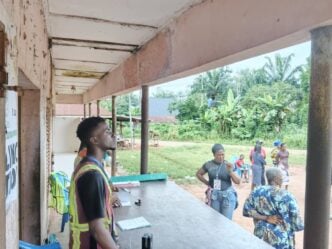The federal government’s decision to impose a 15% ad valorem import duty on Premium Motor Spirit (petrol) and Automotive Gas Oil (diesel) marks a decisive shift in Nigeria’s energy strategy. Scheduled to take effect from November 21, 2025, the policy, endorsed by President Bola Tinubu, aims to wean the country off its dependence on imported fuel and strengthen domestic refining, especially the newly operational Dangote Refinery.
It’s an industrial policy at heart, rooted in the Petroleum Industry Act (PIA), designed to give local producers a fighting chance. But as the start date approaches, Nigerians are asking a blunt question: is the long-term goal of energy self-sufficiency worth the short-term economic pain that’s coming?
The Economic Shockwave
The 15% duty directly increases the landing cost of fuel. Estimates from the Federal Inland Revenue Service (FIRS) show that the tariff alone could add roughly ₦99.72 per litre of petrol. In a market already at the mercy of foreign exchange swings, marketers say this cost will land squarely on consumers.
Advertisement
That could push pump prices beyond the ₦1,000 per litre mark, an unprecedented threshold. For an economy where transport and logistics depend almost entirely on petrol and diesel, the ripple effect will be immediate. Higher fuel costs mean higher prices for everything else: food, building materials, medicines.
The inflationary effect could be severe. For a country already struggling with double-digit inflation, this policy, though well-intentioned, risks igniting another round of cost-of-living crises.
The Social Burden
Advertisement
Over 133 million Nigerians are classified as multidimensionally poor. For most households, purchasing power has already been gutted by the removal of fuel subsidies and the Naira’s steep devaluation.
This new tariff may feel like the final straw. A hawker’s goods will cost more to move. A tailor’s generator will guzzle more expensive fuel. A commuter’s fare may double overnight. These everyday realities add up to a deeper social crisis; one that could easily spill into unrest if people feel abandoned in the transition.
To prevent that, the government will need to roll out visible, credible relief measures; direct cash transfers, subsidised transport, and other forms of support targeted at the most vulnerable groups. Without them, the reform could lose public trust before its benefits materialise.
The Political Calculus
Advertisement
The logic behind the duty is strategic: level the field for local refiners and conserve scarce foreign exchange. It signals seriousness about building an energy-independent Nigeria.
But the timing and optics are delicate. If the public perceives that government is prioritising refinery protection over citizen welfare, political pushback could be fierce. The policy’s success will depend on one critical factor – how fast local refineries, including smaller modular plants, can deliver reliable, affordable output to fill any supply gaps left by reduced imports.
A delay or shortfall could easily turn an ambitious reform into a political and economic flashpoint.
The Bottom Line
Advertisement
The 15% import duty is a bold declaration of intent. It aims to correct decades of distortion and give Nigerian refineries the chance to thrive. But it’s also a dangerous balancing act.
To make it work, the federal government must match industrial ambition with social empathy. That means cushioning the immediate shock for citizens while fast-tracking domestic refining to prove that this sacrifice has a payoff.
Advertisement
Without that balance, the quest for energy independence could backfire – trading economic sovereignty for widespread hardship.
———————————————
Adebawo is an accomplished business leader and communications expert with extensive experience in the oil and gas industry. He currently serves as the General Manager of Government, Joint Venture, and External Relations at Heritage Energy. Adebawo is also an author, scholar, and ordained minister, known for his writings on social and economic issues, strategic communication and leadership.
Advertisement
Views expressed by contributors are strictly personal and not of TheCable.






